Why Do Dogs Like Sticks? [Explained]
Your dog peeing beside a shrub on the road, barking at another dog, and sniffing on different street objects often happens on your usual dog walk. The one habit that probably intrigues you is why your dog loves to pick up sticks. For a dog, a game of fetch is gratifying.
What is it about sticks that dogs love so much?
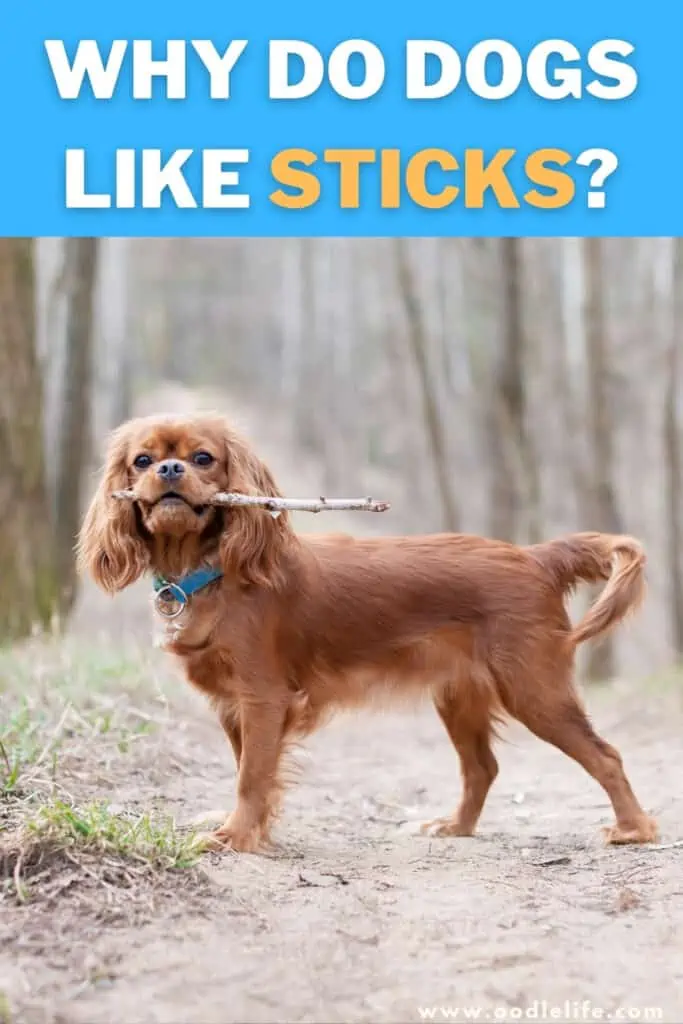
Before pet toys showed up, sticks would suffice. There were no squeaky toys, chewy rubber bones, or tugging ropes, only twigs to keep dogs occupied.
For you walking your dog is a simple routine errand. But, for your furry friend, it’s a lesson full of intriguing discoveries.
Sticks resemble bones. In the absence of a bone, your dog searches for the best sticks to play with. Sticks harbor tons of information and have a weird taste that dogs love to investigate. Dogs study the sights, smells, sounds, flavors, and everything they encounter, including sticks.
Why Do Dogs Carry Sticks?
Your occasional dog walk means receiving all manner of deliveries from your dog. They want to impress you. There’s a good chance your dog brings you enough sticks to light a massive campfire.
What’s up with this habit? Possible explanations include:
- They are taking up a Challenge: How heavy can I carry? Some dogs are ok carrying and playing with average-sized sticks. If yours is the curious kind that loves to push boundaries, it’s no surprise to find him dragging a stick almost twice his size.
This behavior may be the dog challenging himself. It could also be him blowing off some steam due to pent-up energy. If you have an active dog, there are numerous ways you can keep him occupied enough to avoid destruction and aggression in dogs.
- Sticks resemble bones. The shape, hard nature, weight, and size of a stick come very close to that of bones. Your dog certainly knows a stick is not a bone. But, it’s the similarity between the two that makes dogs use sticks as alternative bone toys.
- Sticks have distinctive smells. Their frantic search for sticks involves plenty of foraging. For a dog, this is like a quest to find hidden treasures.
Dogs have an impeccable sense of smell, making the experience super thrilling. Dogs can pick up intricate earthy, musky, woodland scents on soil and sticks. Once their investigative switch gets turned on, they can’t help but want to play more.
- Sticks help alleviate gum pain. If your dog has gum disease or is teething, they are in pain. Sticks are hard. Therefore, they make excellent chewing material that provides some relief for the dog.
Even more, wood from particular trees has pain-relieving qualities. Should your dog come across a stick from this tree, they will chew on it and carry it home for later.
- They want to keep their mouths busy. It’s like chewing gum for humans. You won’t get full from chewing, but the activity is enjoyable! Similarly, dogs love to chew on sticks simply because it’s fun.
They are seeking nothing more than the satisfaction of keeping their mouths busy.
- Sticks have a weird texture. Some sticks are soft, and others are rough. For a dog, testing out different textures on sticks is enjoyable. They test out their jaw strength by gnawing on dry sticks, old sticks, crumbling sticks, sprouting sticks, decaying sticks, etc.
No two sticks are the same — an excellent chance for the dog to enjoy each new experience.
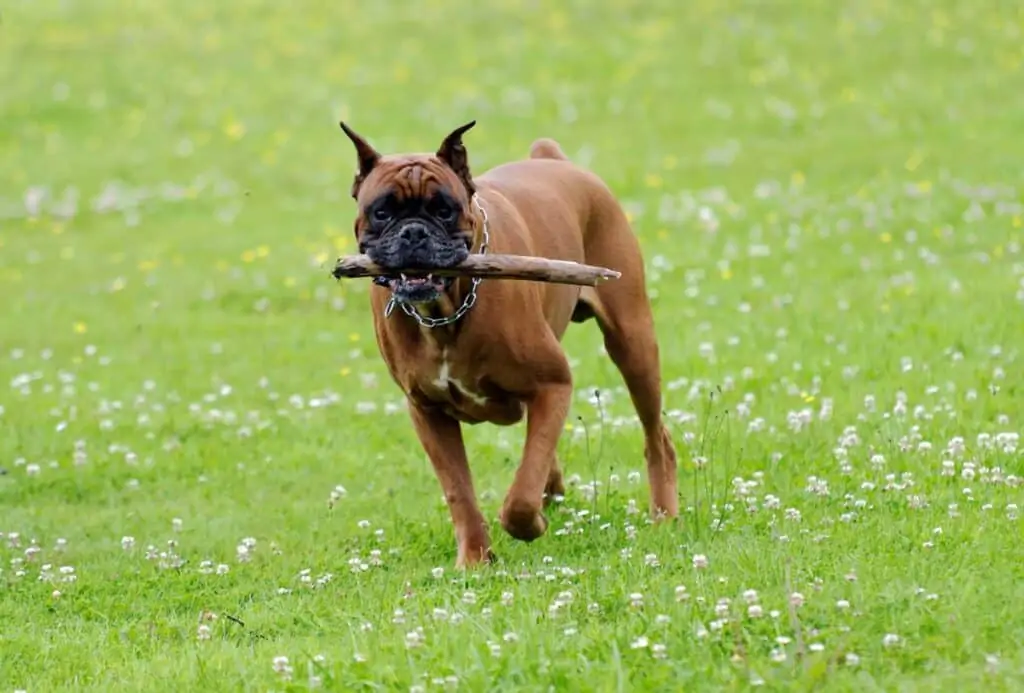
Why Dogs Pick Up Sticks During Walks?
Rewarding your dog when they bring you a stick may prompt them to do it repeatedly. Dogs love to please their owners. Therefore, a hostile or positive reaction can encourage the dog to continue or stop the stick-picking habit.
The main reasons why your dog loves to pick up sticks include:
Attention Seeking
Nothing is as rewarding for a dog as getting many kisses, rubs, and words of affirmation from their owners. Every walk down the street or during playtime, your dog might sneak away to find the best stick to present to you. Their sole aim is to make you proud.
As time advances, the dog will try to bring you bigger-sized sticks, curious about how you’ll react. They’ll keep up the habit if you’re impressed with their job. Your praise and approval mean the world to your dog.
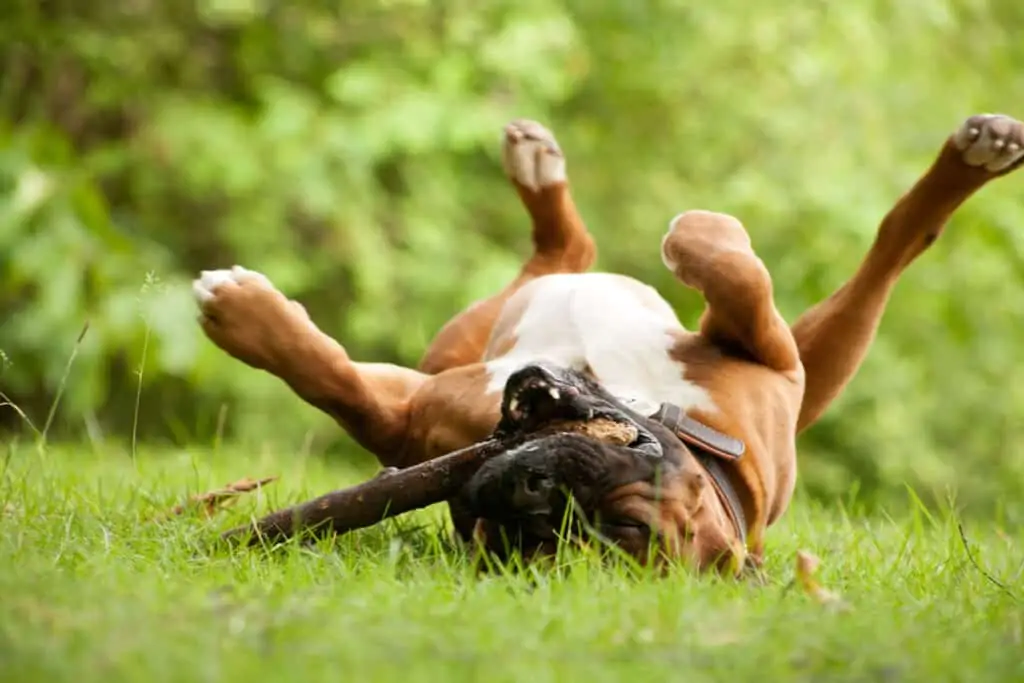
Natural Retriever instinct
Golden Retrievers are an excellent example of dogs initially bred to hunt and retrieve stuff. To this day, it comes naturally for such a dog to want to find something. Call it their natural retriever instinct.
All dogs have varying retriever-based instincts. Therefore, your dog’s favorite activity of picking sticks may fuel their need to hunt and find funny items above and under the ground.
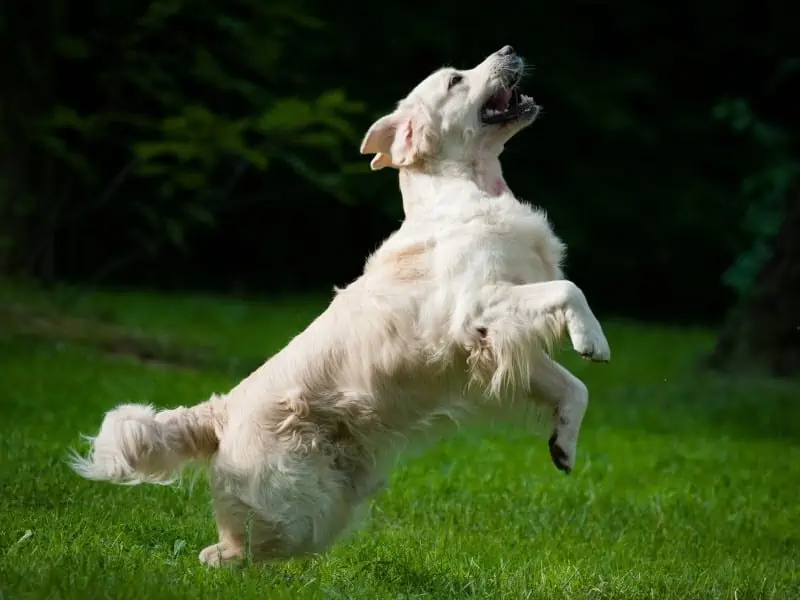
A Delightful Toy
Plastic, rubber, or fabric toys are fantastic for your dog. But nothing beats plain, old, dirty sticks. It’s no surprise that your dog chooses to dig deep in the dirt to find sticks instead of playing with their usual toys at home.
Sticks are welcome alternatives for curious dogs whenever they can’t access their favorite toy. Puppies, for example, want to play all the time. Whether they are playing in the backyard or on their usual walk with you in tow, younger dogs have enough energy to dig for as long as possible.
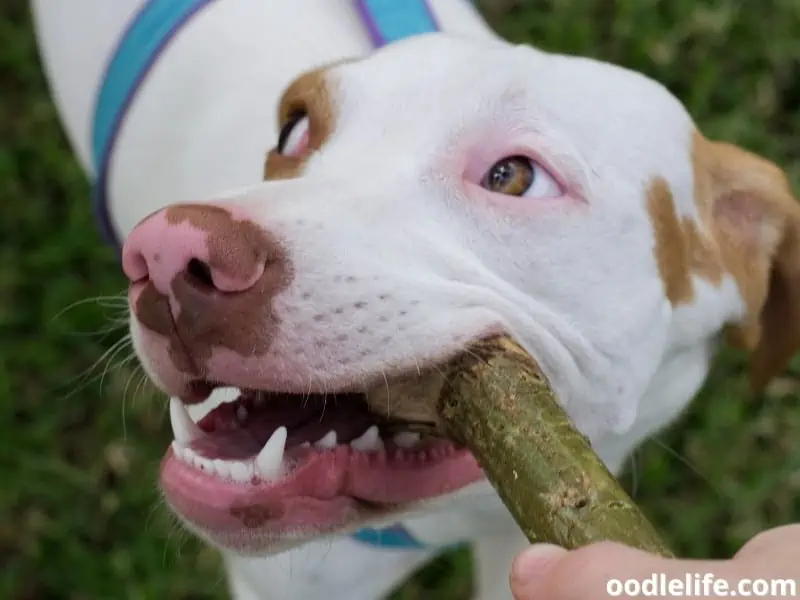
They are Bored and Want to Play
Different circumstances may separate you from your dog, albeit momentarily. But when you’re gone for too long, your dog may find ways to prompt you to play with them every chance they get. A good trick they use to trick you into engaging them is a stick.
Respond by taking the stick they bring over to you and throwing it as far away as possible.
Your dog will scamper away, eager to find the stick and bring it back to you. Before you know it, you guys are playing fetch! The dog will repeat this process over and over again until they’re no longer bored.
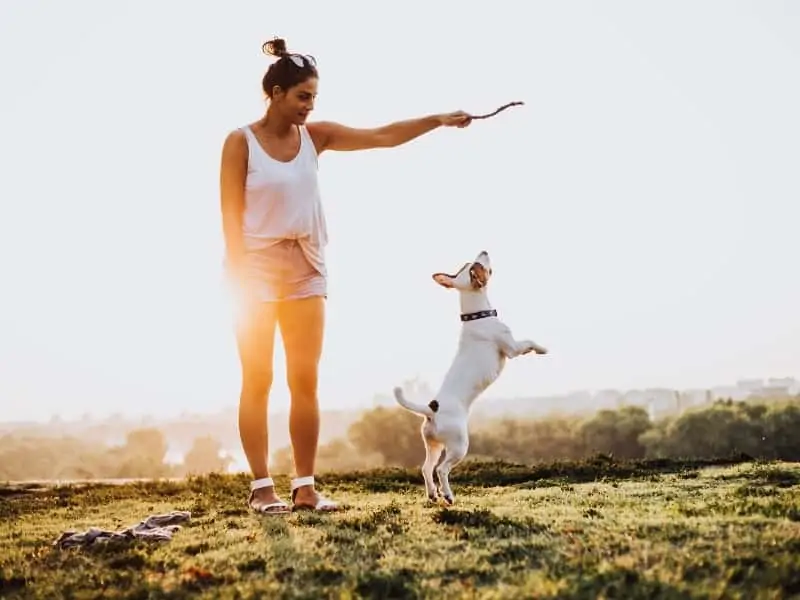
Why You Should Keep Close Watch Over a Dog That Loves Playing with Sticks?
Carrying and playing with sticks is harmless for dogs. However, chewing on the same sticks can bring unwarranted risks that may endanger your beloved dog’s life. If your dog loves to play with sticks, you should keep a close eye on your dog because:
They Can Get Poisoning
Wood or bark from particular trees can be poisonous to dogs if ingested. Poisonous trees include:
- Yew
- Red Oak
- Red Maple
- Black walnut
- Black cherry
- Black locust
Bougainvillea is NOT Poisonous, Aloe Vera plants can be.
Poisoning often leads to severe health complications. Should you observe your dog and notice these symptoms, they’ve been poisoned. These symptoms include:
- Lethargy
- Difficulty breathing
- Fainting
- Foaming in the mouth
- Diarrhea
- Upset stomach
- A drastic change in body temperature
- Crusty scabs on your dog
Rush your pet to the vet’s emergency room for fast action and treatment for poisoning.

They Can Get Hurt
Your dog may take a friendly approach to everyone and everything around them. However, they can turn aggressive when chewing or gnawing on food or a stick.
A dog that vigorously tears up a stick risks hurting its mouth and jaws. Sticks tend to splinter and pierce through flesh. Unbeknownst to you, your dog may suffer incredible pain from chewing on a stick.
There have been cases of dogs swallowing sharp splinters, leaving lacerations and cuts on the stomach, trachea, esophagus, and other areas. Leaving these injuries unaddressed may cause serious infections or even death.
If you notice reduced appetite, irritability, especially when you touch your dog’s mouth/jaw, or reduced playfulness, thoroughly check your dog’s mouth. Chances are, a splinter is stuck in there. Also, consider visiting your veterinarian to ensure the problem is solved professionally.

They Risk Choking
Moderate chewing of bones and sticks is not harmful because it helps eliminate tartar from your dog’s teeth.
However, there’s no telling how much danger your dog would be in if they swallowed giant sticks. Dogs may be intelligent, but they often overestimate their abilities. Their attempt to eat the whole stick may leave them gasping for air if it gets stuck down their throat.
Asphyxiation or choking may occur as a result of dogs chewing on sticks.
If your dog is choking, rush to the nearest veterinary facilities for fast treatment.
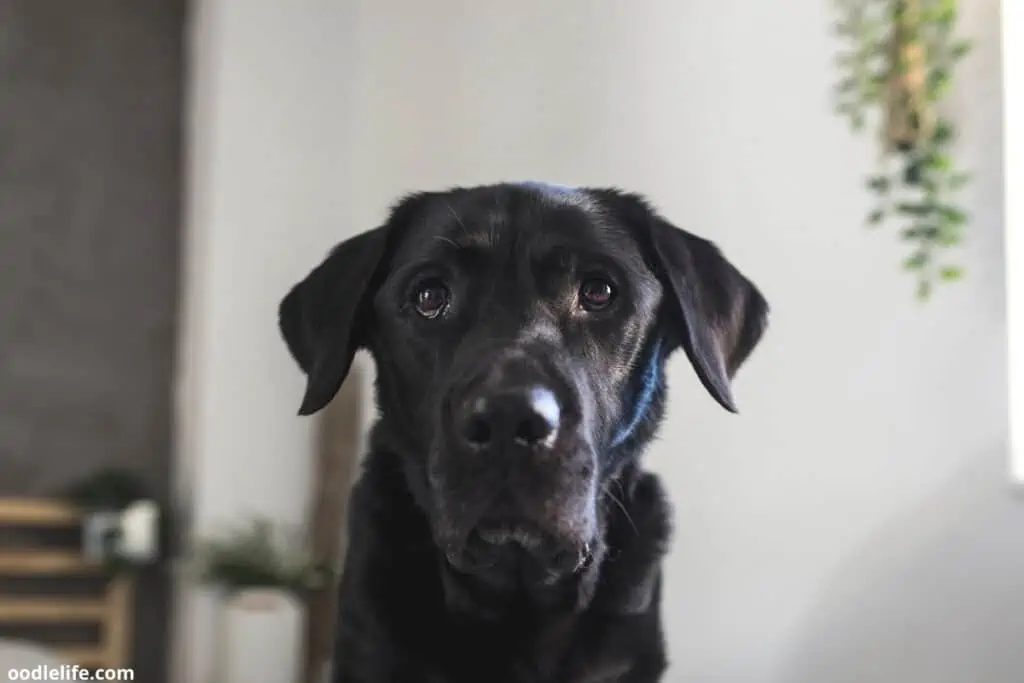
Conclusion
Now you know why sticks drive your dog crazy. Most dogs come to no harm by playing with sticks. But, you must remain aware of the risks involved, especially if your dog prefers sticks to other rubber/plastic toys.
It’s advisable to introduce your dog to other friendly toys that will not risk their well-being. Feel free to bring these toys on your walks or during playtime. Train your dog to only pick the stick and avoid chewing on it no matter how tempting it gets.
After playing fetch, remember to leave the stick in the woods instead of carrying it home.
Keep your vet’s contacts close. Consult your vet if you observe unusual behavior or if you have some burning questions regarding your dog’s safety. It may be that one crucial chat with your veterinarian that alerts you and forces you to get the necessary medical attention for your furry friend.